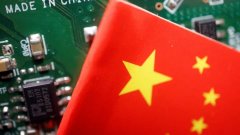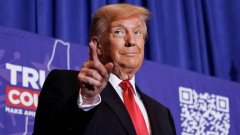
Davos, SWITZERLAND — Liberal pushback against a likely highly divisive U.S. election will play into the hands of the Chinese, Austria's minister for foreign affairs, Alexander Schallenberg, said Thursday.
Speaking to CNBC at the , Schallenberg said the upcoming election should not be turned into an "intellectual debate," whereby the democratic process is questioned because of the divisiveness of certain candidates.
"Let's be careful not to embark on an intellectual debate, where we end up saying 'we'd rather not have elections in the U.S.,' because then we're playing into the Chinese's hands," he told CNBC's Silvia Amaro.
"They treat democracy as a weakness, making us slower, making us more cumbersome. And no, democracy is a strength," he added. A spokesperson for the Chinese Embassy in the U.K. wasn't immediately available for comment when contacted by CNBC.
Schallenberg was speaking specifically about likely Republican candidate and former President , whose electoral eligibility has come under fierce debate amid ongoing legal proceedings around his role in the Jan. 6 Capitol riot.
However, the foreign minister said he continued to have huge trust in the U.S. Constitution and its institutions, and their ability to present votes with two legitimate and electorally representative candidates.
Trump, for his part, was considered highly skeptical of China during his time in office, opting for a protectionist approach. However, many of his policies have been extended by the Biden administration.
Schallenberg was speaking on a panel alongside Mark Malloch-Brown, president of the Open Society Foundations, the George Soros-founded nonprofit which provides financial support for civil society groups.
Malloch-Brown said that it was "too soon to assume" that Trump would win the presidency — or even the Republican candidacy — despite on Monday.
However, he noted that Trump is viewed by some Americans as the "change candidate," when many are looking for just that, and thus should not be dismissed.
"He's seen by many Americans as the change candidate at a time when Americans have got quite a high degree of frustration and exasperation about their economic security and their future," Malloch-Brown said.
"He's got a more compelling case than his Democratic critics who think anyone who supports him is somehow crazy," Malloch-Brown added.
He added that the November vote — one of around 70 elections to be held this year — is often described in "apocalyptic terms," but it may end up being far "more traditional" than that.




